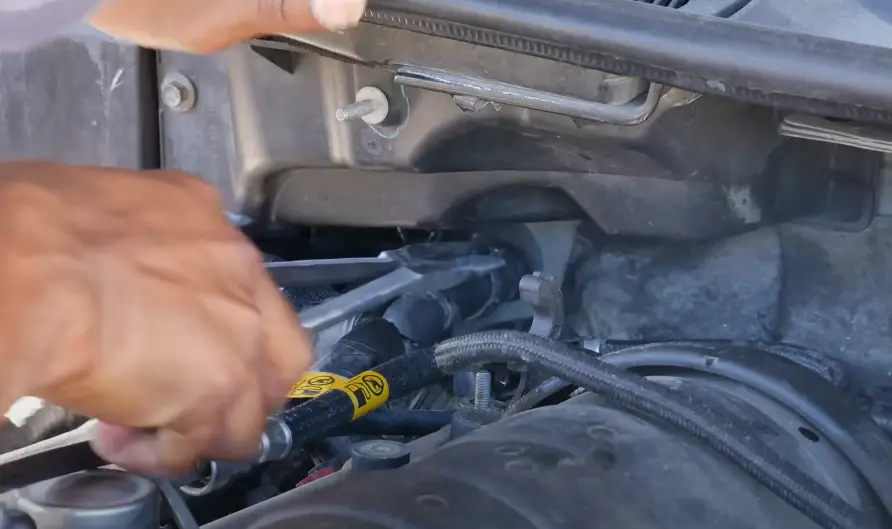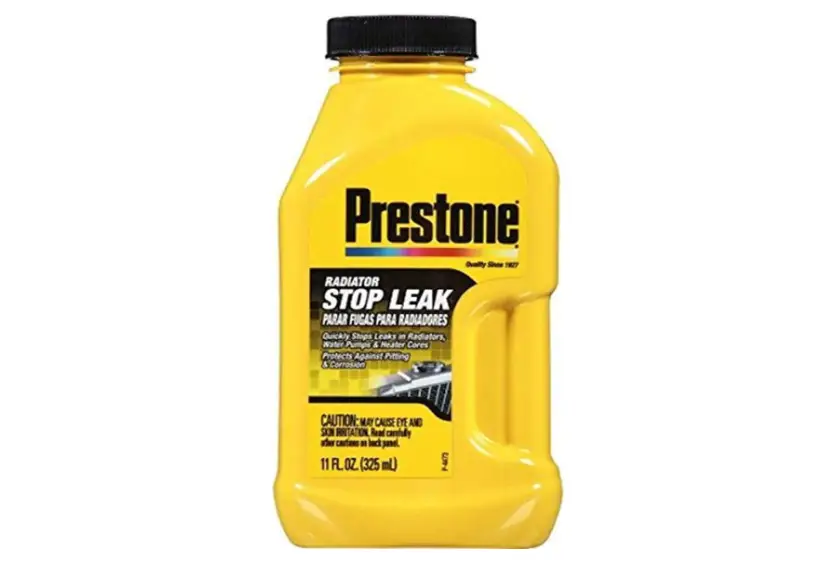Radiator stop leak products can potentially clog the heater core due to the small passages within it. While these products are designed to seal leaks, the particles they contain may accumulate in the heater core, reducing its efficiency or blocking it entirely. This can lead to poor heating performance in the cabin and may cause engine overheating if the coolant flow is restricted.
Radiator stop leak products are popular quick fixes for minor leaks in a vehicle’s cooling system. They can temporarily seal small cracks or holes in the radiator, hoses, or other parts of the cooling system, which can help prevent coolant loss and engine overheating.
However, there is ongoing debate among automotive enthusiasts and professionals about whether these products can clog a vehicle’s heater core, potentially causing more harm than good.
Contents
Will Radiator Stop Leak Clog Heater Core?
The heater core is a small radiator-like component located inside the vehicle’s dashboard. It is responsible for providing heat to the cabin by circulating hot coolant through a series of tubes, which then transfers heat to the air that blows into the cabin. Given the heater core’s design and function, it has smaller passages compared to the main radiator. This makes it more susceptible to clogging, especially by foreign particles introduced into the system.
1. Clogging Risks:
Radiator stop leak products contain particles that can potentially clog the heater core. The small passages inside the heater core are designed for the smooth flow of coolant, and the introduction of foreign materials can disrupt this flow. If the particles from the stop leak product accumulate within the heater core, they can reduce its efficiency or block it entirely. This blockage can result in a lack of heat in the cabin and, more seriously, can cause the engine to overheat due to the impaired circulation of coolant.
2. Reduced Heating Performance:
Even if the stop leak product doesn’t completely clog the heater core, it can reduce the flow of coolant through the core. This reduction in flow can lead to inadequate heating in the cabin, especially during cold weather. You might notice that the air blowing from the vents is not as warm as it used to be, which can be particularly problematic in colder climates.
3. Chemical Reactions:
Some radiator stop leak products rely on chemical reactions to create a seal. While these reactions are designed to occur at the site of a leak, they can potentially occur elsewhere in the cooling system, including the heater core. If a reaction occurs inside the heater core, it can lead to the formation of solid deposits that further obstruct the flow of coolant.

When Is It Safe to Use Radiator Stop Leak?
Radiator stop leak products can be a convenient and effective temporary solution for minor leaks. However, they should be used with caution, especially if you rely on your vehicle’s heater for warmth or if your vehicle is equipped with a delicate or older cooling system.
1. For Temporary Fixes:
If you’re in a situation where you need a quick fix to get you to a repair shop or to avoid immediate overheating, using a radiator stop leak product can be justified. However, it should not be considered a long-term solution. The product is designed to buy you time until you can have the leak properly repaired by a professional.
2. Older or High-Mileage Vehicles:
In older vehicles or those with high mileage, the cooling system may already be compromised by corrosion, scale, or debris. In these cases, adding a stop leak product can exacerbate existing problems, leading to clogging in the heater core or other parts of the system.
3. Proper Maintenance:
If you regularly maintain your cooling system and flush the coolant according to the manufacturer’s recommendations, the risk of clogging is lower. However, even in a well-maintained system, the use of stop leak products should be approached with caution, particularly if you have concerns about the heater core.

Alternatives to Radiator Stop Leak
Instead of relying on radiator stop leak products, consider these alternatives to address leaks in your cooling system:
1. Professional Repair:
The most reliable way to fix a radiator leak is to have it repaired or replaced by a professional. This approach eliminates the risk of clogging the heater core or other parts of the cooling system.
2. Regular Maintenance:
Regularly flushing the cooling system and replacing old or worn hoses can prevent leaks from developing in the first place. Maintaining the proper coolant mixture and using high-quality products can also reduce the likelihood of leaks.
3. Monitoring and Early Detection:
Keep an eye on your vehicle’s coolant level and temperature gauge. Early detection of a leak can allow you to address the issue before it becomes a major problem. This can also give you time to seek a professional repair rather than resorting to a stop leak product.
Related Article
Will Radiator Hose Work for Fuel?
Why Is My Top Radiator Hose Collapsing?
When to Replace Radiator Hoses
How to Tell How Many Cores a Radiator Has
Frequently Asked Questions
Here are some FAQs about radiator stop leak clog heater core –
1. Can radiator stop leak permanently fix a leak?
No, radiator stop leak products are designed as temporary fixes. While they can effectively seal minor leaks, they are not a permanent solution and should not replace professional repairs.
2. Will using radiator stop leak void my warranty?
It depends on your vehicle’s warranty terms. Some manufacturers may void the warranty if stop leak products are used, especially if they cause damage to the cooling system. It’s important to check your warranty before using such products.
3. How can I tell if my heater core is clogged?
Signs of a clogged heater core include reduced heating performance in the cabin, a sweet smell of coolant inside the vehicle, or visible coolant leaks inside the car. If you suspect a clog, it’s best to have the system inspected by a professional.
4. Are there any stop leak products specifically designed to avoid clogging the heater core?
Some stop leak products claim to be safe for use in the heater core and other delicate parts of the cooling system. However, the risk of clogging still exists, and it’s important to use these products with caution.
5. Can I flush the heater core if it gets clogged by a stop leak product?
Yes, flushing the heater core can sometimes remove blockages caused by stop leak products. However, if the clog is severe, it may require professional intervention or even replacement of the heater core.
Conclusion
While radiator stop leak products can be a quick and convenient solution for minor leaks, they come with risks, particularly to the heater core. The small passages within the heater core make it vulnerable to clogging, which can lead to reduced heating performance or even engine overheating. If you choose to use a radiator stop leak product, it should be as a temporary measure, with the understanding that it is not a long-term solution.
For most drivers, the best course of action is to address leaks promptly with professional repairs and to maintain the cooling system regularly. By doing so, you can avoid the potential pitfalls of using stop leak products and keep your vehicle’s cooling system, including the heater core, functioning properly.